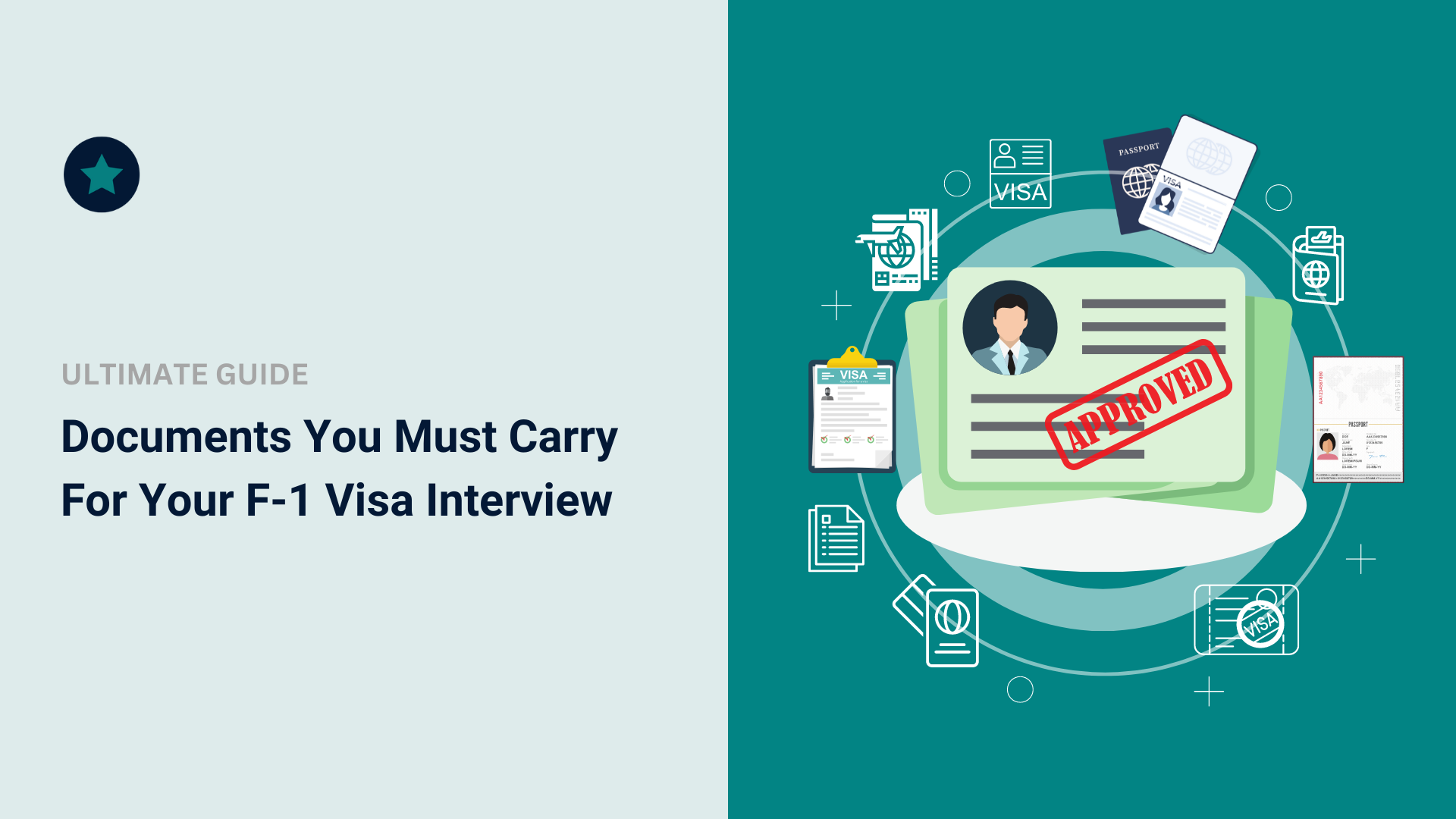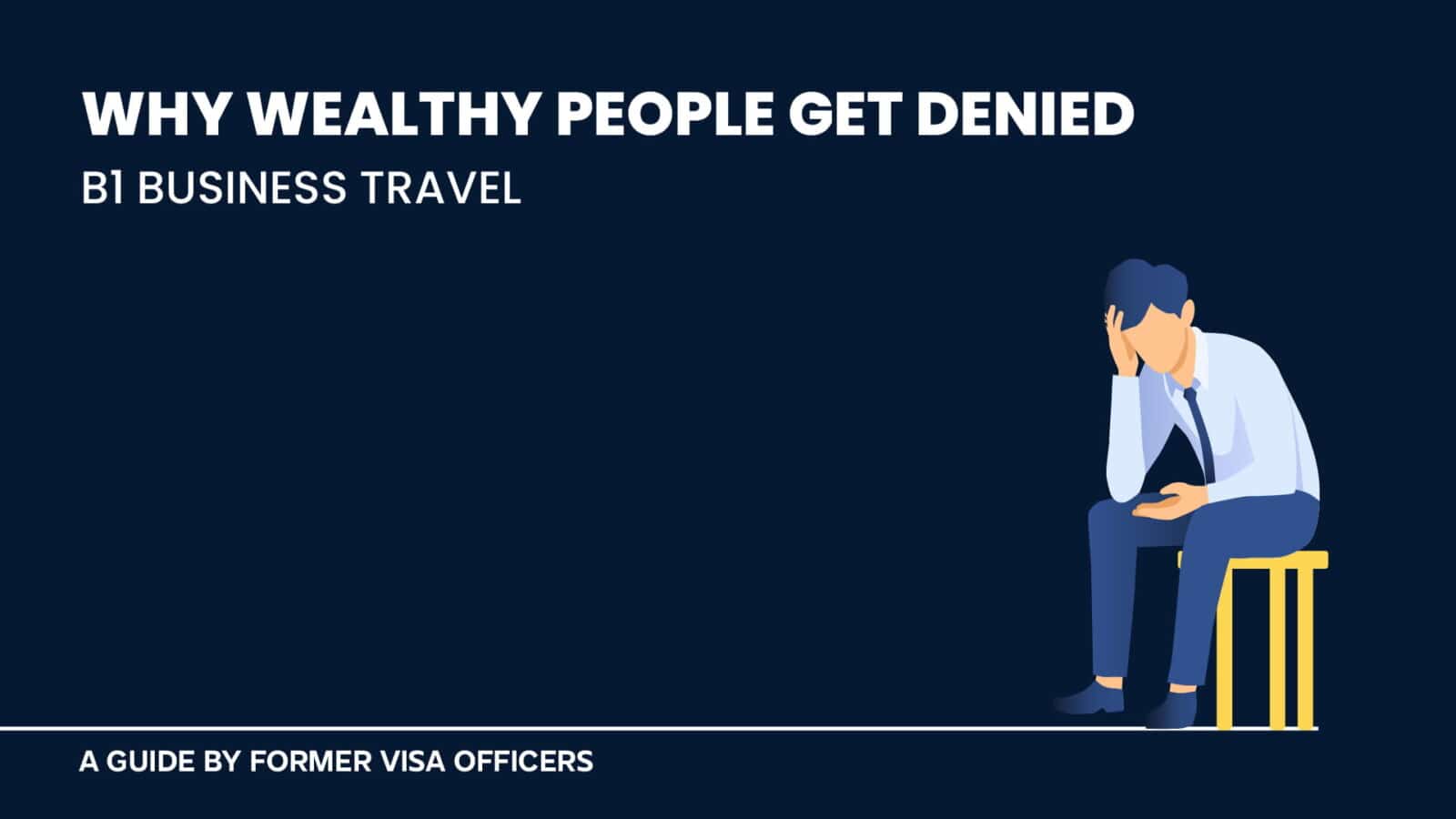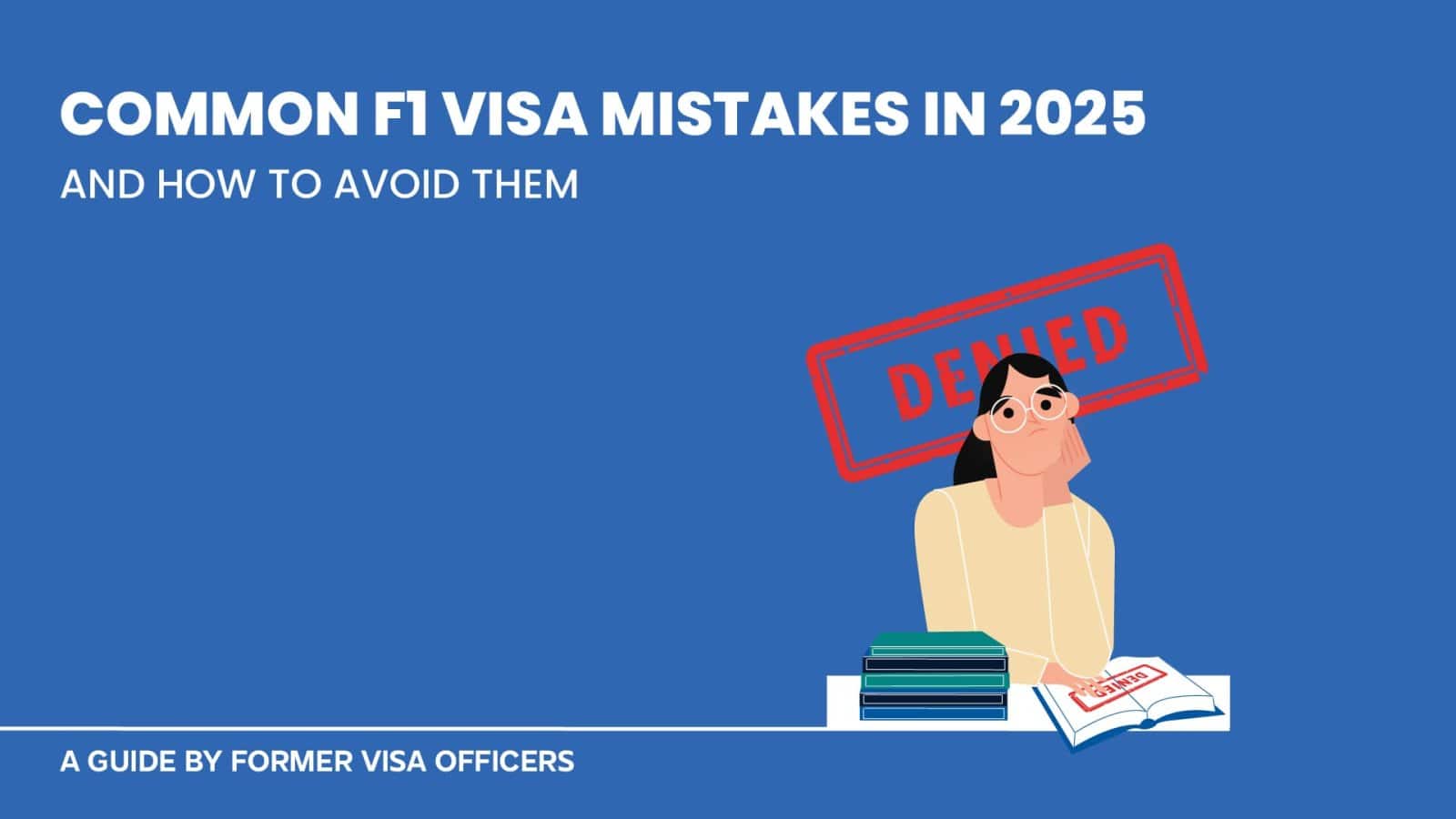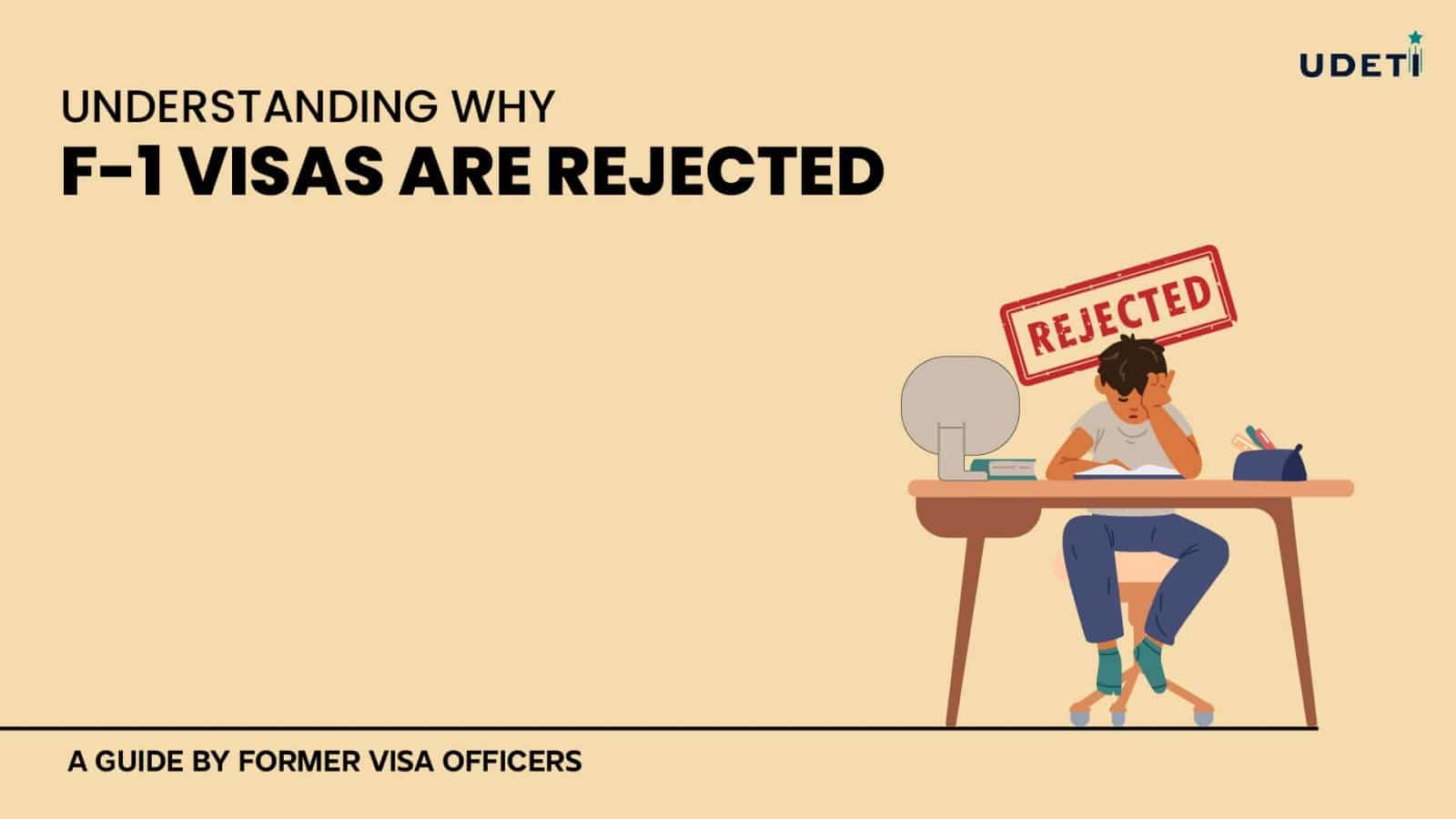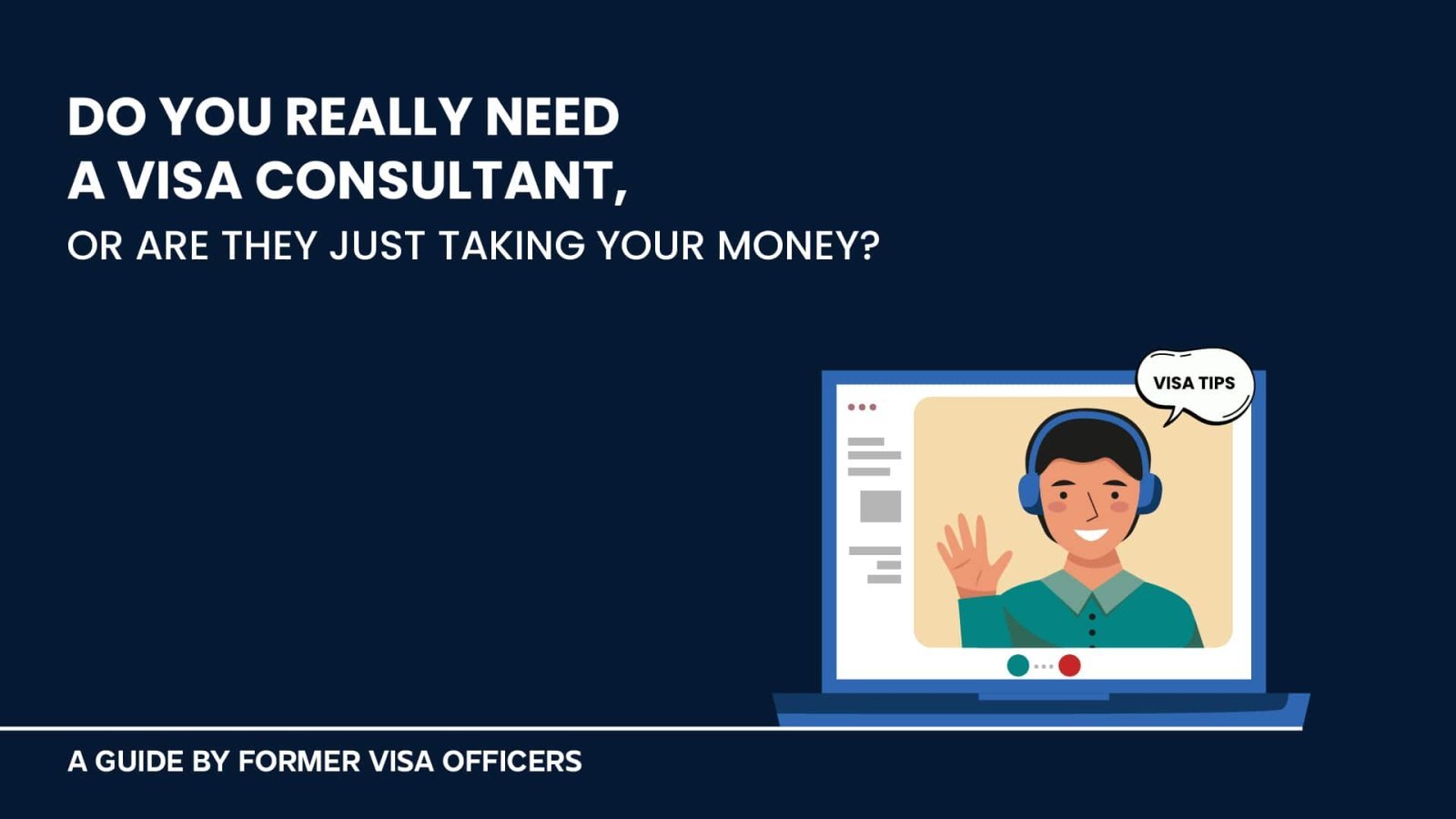The F-1 Visa is a non-immigrant student visa issued to foreign students who wish to study in the U.S. It is granted by the U.S. Embassies and Consulates located outside the United States.
You can apply for an F-1 visa once you have received your university’s acceptance letter and the I-20 form.
The visa interview will be the final and most crucial step in getting your visa. At the time of your interview, you must bring certain documents to be assessed by the consular officer.
The Documents to Carry for the F-1 Visa Interview are –
- A photograph that meets all photograph requirements for a U.S. visa.
- DS-160 barcode confirmation page
- Original form I-20 with an ink signature
- SEVIS receipt
- Valid passport
- Visa Application fee payment receipt
Generally, the SEVIS recipe, DS-160 barcode page, and visa applicant fee receipt will not be asked for. Still, they are good documents to have on hand in case of any system error.
It’s important that you acquire the correct knowledge and start preparing your documents accordingly. It would help if you also prepared for your F-1 visa interview by looking up F-1 visa interview questions and answers. So, let’s dig in and learn about all the documents you need for your F-1 visa interview!
Form DS-160
The DS-160 is the non-immigrant visa application form to be filled out online on the Department of State website. It needs to be submitted by everyone who wishes to enter and stay in the United States on a temporary basis.
This form must be completed and submitted before your interview at the consulate or embassy. You will need the barcode number provided on the form confirmation page to schedule your interview.
Form DS-160 asks you to upload your face image and answer questions about you and your family, education, work experience, and travel details.
How does the visa officer use the DS-160?
The visa officers will process your student visa application using the details mentioned on Form DS-160.
In making a decision, visa officers use information from the DS-160 in conjunction with the facts provided during your personal U.S. visa interview.
The interviewing officer has to conduct a lot of interviews in a short time. As such, they are pressed for time and they may not go over all of the documents you brought for the interview.
This makes the role of DS-160 very crucial, and it could make or break your interview.
How to fill out the DS-160 correctly?
Following are the guidelines you must follow while filling out your DS-160 –
- Make sure it’s truthful
- List all employment, work duties and internships
- You should list yourself as the person who filled out the DS-160
- You should know the content of the DS-160
- All your prior visa refusals should be noted
- All countries visited should be listed, this gives you credibility
What is the officer looking for on the DS-160 and during the interview?
Generally, they will check if you are:
- A legitimate student through your noted school and work history, including internships
- Have the financial means to cover the costs of education and living in the U.S.
- Have strong ties to your home country, and intend to return after your studies or OPT is complete. This does not mean that you can not aim for an H1b or express interest in OPT, this simply means that you will do things in a legal and ethical way while on your F1 visa.
Form I-20
Form I-20 is a document issued by a SEVP-certified educational institution stating that a student has been admitted to a full-time study program and has demonstrated sufficient financial means to remain in the U.S.
It is also known as “Certificate of Eligibility for Nonimmigrant Student Status” and is required for all F and M students studying in the United States. It will be issued to you by your Designated School Official (DSO).
Form I-20 contains information about your program start date, its cost and how you intend to pay for it.
During the visa interview, the visa officer will request an original copy of it, so you should carry it along with you. You should know the content of your I-20, and have an updated/accurate I-20.
For example, suppose you cleared a language exam and are no longer in a pathway program but do not have an updated I-20. In that case, you should request that your university update your I-20 before the interview.
Need to speak to a former U.S. consular officer?
SEVIS receipt
SEVIS, or the Student and Exchange Visitor Information System, is a system that tracks and monitors non-immigrant students and exchange visitors to the U.S.
It records all your information, including the reasons for your trip to the United States. Your university will assign you a SEVIS number on the I-20.
You, on your part, must pay the SEVIS Fee. After completing your payment, print a payment receipt. The printed confirmation is proof of payment for the I-901 SEVIS Fee.
You are advised to pay this fee before beginning to fill out form DS-160 as payment receipts are mailed and can take up to 15 days to arrive.
When you pay your SEVIS fee, the Student and Exchange Visitor Program will issue you a SEVIS receipt. This document will be required for both your visa application interview and admission through the port of entry.
Other Documents
Generally, the officer will only ask for the I-20 and passport at the visa window. Ensure that your passport is in good condition with 6 months validity.
It is still advisable to bring along other important documents, such as transcripts, diplomas, scholarship letters, other university acceptance letters and standardized test scores.
However, do not hand over your documents unless requested. Instead, keep them organized in a bag near your feet in case they are requested.
Finance Documents
Typically, finance documents will not be reviewed, but you should have them anyway. Here is the list of finance documents you should carry along in a folder:
- Any loan documents
- Bank balance sheets For an F1 Visa
Know your financial situation and be able to articulate the type of loan you have in case you are asked for more details!
This blog post was written by Yvette Bansal, former consular officer & Kausar Shaikh, Content Strategist.
DISCLAIMER:
This blog does not endorse or advocate for any illegal activities. All content presented here is intended for educational purposes only. The viewpoints expressed do not constitute legal advice and are solely based on the writer’s opinions and experiences. Please use the information provided responsibly. Any advice given is of a general nature and should be applied to your specific circumstances with caution and consideration.
Copyright © 2024 UDETI LLC. All rights reserved.

